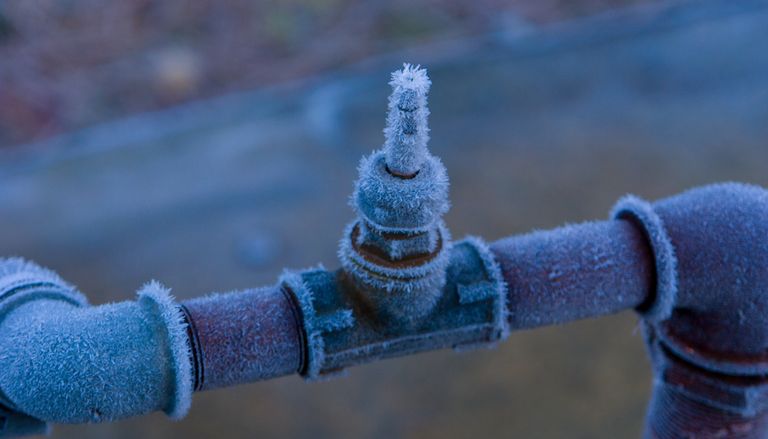Essential Strategies for Preventing Frozen Plumbing in Winter
Essential Strategies for Preventing Frozen Plumbing in Winter
Blog Article
Just about everyone has his or her own assumption involving How To Avoid Freezing Pipes.

Winter can damage your plumbing, especially by freezing pipelines. Below's how to avoid it from happening and what to do if it does.
Introduction
As temperatures decline, the risk of frozen pipes boosts, possibly causing pricey fixings and water damages. Understanding just how to prevent icy pipelines is essential for home owners in chilly climates.
Comprehending Frozen Pipelines
What creates pipes to freeze?
Pipes ice up when exposed to temperatures listed below 32 ° F (0 ° C) for prolonged durations. As water inside the pipelines ices up, it broadens, putting pressure on the pipeline walls and possibly causing them to break.
Dangers and damages
Icy pipes can bring about water system disruptions, building damage, and expensive repairs. Ruptured pipelines can flood homes and create comprehensive architectural damage.
Signs of Frozen Water Lines
Identifying icy pipes early can stop them from bursting.
How to recognize frozen pipes
Search for reduced water flow from faucets, unusual smells or sounds from pipelines, and noticeable frost on subjected pipes.
Prevention Tips
Shielding prone pipes
Cover pipelines in insulation sleeves or utilize heat tape to shield them from freezing temperature levels. Focus on pipelines in unheated or exterior locations of the home.
Heating methods
Maintain interior rooms adequately warmed, particularly locations with pipes. Open up cupboard doors to allow cozy air to flow around pipelines under sinks.
Protecting Outside Pipes
Yard pipes and outside faucets
Disconnect and drain pipes garden hose pipes prior to winter months. Set up frost-proof spigots or cover exterior taps with insulated caps.
What to Do If Your Pipelines Freeze
Immediate actions to take
If you suspect icy pipes, maintain faucets open up to ease pressure as the ice thaws. Use a hairdryer or towels taken in warm water to thaw pipes gradually.
Long-Term Solutions
Structural modifications
Consider rerouting pipes far from outside walls or unheated locations. Include extra insulation to attics, cellars, and crawl spaces.
Updating insulation
Invest in premium insulation for pipelines, attic rooms, and walls. Proper insulation assists preserve regular temperature levels and decreases the risk of icy pipelines.
Final thought
Avoiding frozen pipelines needs proactive actions and quick responses. By recognizing the causes, signs, and safety nets, property owners can protect their pipes during cold weather.
Helpful Tips to Prevent Frozen Pipes this Winter
UNDERSTANDING THE BASICS: WHY PIPES FREEZE AND WHY IT’S A PROBLEM
Water freezing inside pipes is common during the winter months, but understanding why pipes freeze, and the potential problems it can cause is crucial in preventing such incidents. This section will delve into the basics of why pipes freeze and the associated problems that may arise.
THE SCIENCE BEHIND FROZEN PIPES
When water reaches freezing temperatures, it undergoes a physical transformation and solidifies into ice. This expansion of water as it freezes is the primary reason pipes can burst. As the water inside the pipe freezes, it expands, creating immense pressure on the walls. If the pressure becomes too great, the pipe can crack or rupture, leading to leaks and water damage.
FACTORS THAT CONTRIBUTE TO PIPE FREEZING
Low Temperatures: Extremely cold weather, especially below freezing, increases the risk of pipes freezing. Uninsulated or Poorly Insulated Pipes: Pipes located in unheated areas, such as basements, crawl spaces, or attics, are more prone to freezing. Insufficient insulation or lack of insulation altogether exacerbates the problem. Exterior Wall Exposure: Pipes running along exterior walls are susceptible to freezing as they encounter colder temperatures outside. Lack of Heating or Temperature Regulation: Inadequate heating or inconsistent temperature control in your home can contribute to frozen pipes. PROBLEMS CAUSED BY FROZEN PIPES
- Pipe Bursting: As mentioned earlier, the expansion of water as it freezes can cause pipes to burst, resulting in significant water damage.
- Water Damage: When pipes burst, it can lead to flooding and water damage to your property, including walls, ceilings, flooring, and personal belongings.
- Structural Damage: Prolonged exposure to water from burst pipes can compromise the structural integrity of your home, leading to costly repairs.
- Mold and Mildew Growth: Excess moisture from water damage can create a favorable environment for mold and mildew growth, posing health risks to occupants.
- Disrupted Water Supply: Frozen pipes can also result in a complete or partial loss of water supply until the issue is resolved.
WHY CERTAIN PIPES ARE MORE PRONE TO FREEZING
- Location: Pipes located in unheated or poorly insulated areas, such as basements, crawl spaces, attics, or exterior walls, are at higher risk of freezing.
- Exterior Pipes: Outdoor pipes, such as those used for irrigation or exposed plumbing, are particularly vulnerable to freezing as they are directly exposed to the elements.
- Supply Lines: Pipes that carry water from the main water supply into your home, including the main water line, are critical to protect as freezing in these lines can affect your entire plumbing system.
- Underground Pipes: Pipes buried underground, such as those connected to sprinkler systems or outdoor faucets, can be susceptible to freezing if not properly insulated.
https://busybusy.com/blog/helpful-tips-to-prevent-frozen-pipes-this-winter/
:strip_icc()/snow-outdoor-faucet-pipes-4af65d1e5e904fb1aa7bf74071fe5d89.jpg)
I stumbled upon that piece on Prevent Frozen Pipes while scouting around the internet. Sharing is nice. One never knows, you could be doing someone a favor. Many thanks for taking the time to read it.
Get A Free Quote Report this page